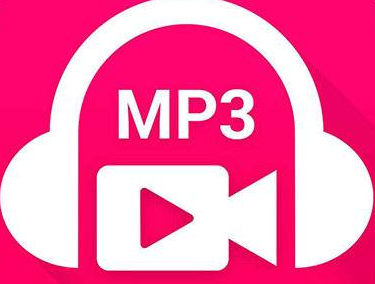(单词翻译:单击)
Now, 22 years later, the MP3 truly is dead, according to the people who invented it.
22年后的今天,MP3格式的发明者宣布了它的正式终结。
The Fraunhofer Institute for Integrated Circuits, a division of the state-funded German research institution that bankrolled the MP3's development in the late '80s, recently announced that its "licensing program for certain MP3 related patents and software of Technicolor and Fraunhofer IIS has been terminated."
MP3诞生于上世纪80年代末,由德国国立研究机构夫琅和费集成电路研究所资助研发。近日,该研究所宣布“特艺集团和夫琅和费集成电路研究所已经终止了某些MP3相关专利的授权”。
Bernhard Grill, director of that Fraunhofer division and one of the principals in the development of the MP3, told NPR over email that another audio format, AAC — or "Advanced Audio Coding," which his organization also helped create — is now the "de facto standard for music download and videos on mobile phones." He said AAC is "more efficient than MP3 and offers a lot more functionality."
夫琅和费集成电路研究所主任伯恩哈德·格里尔和MP3的一位研发负责人,在一封寄给NPR的邮件中表示,研究所发明的另一种音频格式高级音频编码(ACC)已经成为了手机下载音乐和视频等内容的标准,ACC格式拥有更高的效率和更强大的功能。
As Stephen Witt illustrates throughout his excellent opening chapters in Witt's How Music Got Free, the MP3, before upending the musical world as we knew it, almost died in the research lab.
史蒂芬·维特在《音乐是怎么变得免费的》开篇中写道,早在MP3颠覆整个音乐产业之前,它就已经死在了实验室里。
The team of engineers that invented the format was attempting to make it possible to send audio over telephone lines, which could only transmit small amounts of data. Fraunhofer — in competing for the legitimacy it needed to persuade tech companies to actually use MP3s, and so actually make money.
研发MP3格式的工程师团队最初试图要让音频格式通过电话线传输--我们知道它的传输速率非常慢--争取到合法性后再将其卖给技术公司,以获得收益。

It was repeatedly beleaguered by clever corporate sabotage and later by piracy.
可惜这些努力总是被盗版等诸多问题所阻挠。
Other failures hinged on the need for the world to catch up with the technology's possibilities: Along the way, one computer engineer on the team had a patent for a music streaming service denied by the German government because it was technologically absurd at the time.
另外,MP3格式的开发团队在把握技术态势上也显得无所适从。实验室的一位工程师在当时就提出了音乐流媒体服务的构想,却遭到了德国有关部门的驳回,因为这在当时看来就是天方夜谭。
In early 1995, the format was on life support, with one licensing deal being the use of the technology by hockey arenas across the U.S. (That spring meeting in which the MP3 was declared dead came months later, after another failed pitch that denied it being standardized and widely adopted.)
早在1995年,MP3格式开始了自己的生命周期,它首先被应用在美国的冰球球场上。然而它的生命周期其实只有一年,因为各种各样的错误,研究者们始终未能使MP3格式标准化和广泛接受。
A little later, Fraunhofer began giving away the software that consumers needed to turn compact discs into MP3s at home. The rest is recent history.
之后,研究所决定向消费者免费赠送软件,鼓励用户将压缩磁盘上的歌曲转存到家用电脑MP3文件中,从此这一格式便得以广泛传播。
And it's not just that more efficient and complete ways of storing music have been developed. There was a deeper problem.
尽管MP3比其他存储音乐的方式更加高效,但还有一个严重的问题。
The engineers who developed the MP3 were working with incomplete information about how our brains process sonic information, and so the MP3 itself was working on false assumptions about how holistically we hear.
MP3的开发者们在进行研发的时候,并没有完全把握了大脑处理声音信息的知识。因此,MP3错误地抛弃了许多必要的信息量。
As psychoacoustic research has evolved, so has the technology that we use to listen. New audio formats and products, with richer information, are arriving.
随着心理声学研究的进步,相关技术也不断完备,新的音频格式和产品层出不穷,它们承载着更丰富的信息量。
So is it the end of an era? We may still use MP3s, but AAC is indeed much better — it's the default setting for iTunes now — and other formats are even better than it, though they also take up mountains of space on our hard drives.
那么,MP3时代是否结束了?实际上,我们仍然可以使用MP3。然而,作为iTunes默认格式的ACC确实更好一些。虽然其他的一些格式可能比ACC格式更好,但是却可能占用我们大量的硬盘空间。


